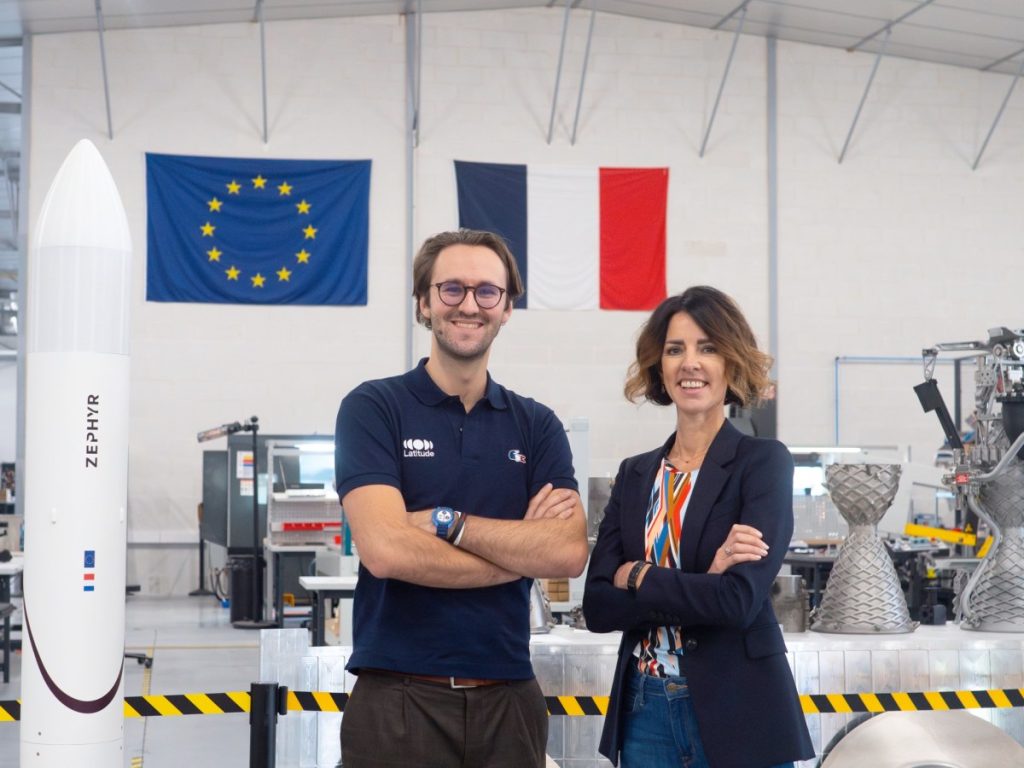
Latitude hires new CEO (Image Credit: Space News)
WASHINGTON — French launch vehicle startup Latitude has hired an industry veteran as its new chief executive as the company gears up for its first launch.
Latitude announced Nov. 5 that it hired Aurélie Bressollette as chief executive. She succeeds Stanislas Maximin, co-founder of the company, who moved into the role of executive chairman.
Bressollette comes to Latitude from Rivada Space Networks, where she was vice president of the procurement office for the constellation company. She previously worked for Redwire, OHB System and Airbus.
In an interview, Maximin said he hired Bressollette to handle day-to-day operations of the company as Latitude grew. “As a founder, you’ve got to fire yourself from multiple jobs through the course of building the company,” he said, noting he had previously handed over responsibilities of being chief financial officer and salesman to others at the company.
Latitude had reached a point, he said, where he was doing both the role of chief executive managing the company as well as also handling its strategy and fundraising. “The two jobs were literally full-time jobs, and I had the choice between do I just not do both jobs correctly, or do I find the right person for one of the jobs?”
He said Latitude’s board agreed nine months ago to hire a chief executive and, soon after, stumbled across Bressollette. She said she was not initially looking for a job like this but, after talking with Maximin, found Latitude would be a good fit.
“I don’t think at the very beginning of the company that my contributions would have been the best,” she said in an interview. “But now that we are getting into industrialization, we have to structure the program but cannot afford to be burdened by heavy processes. With my experience, it’s just a perfect match.”
Latitude, based in the French city of Reims with 140 employees, is developing a small launch vehicle called Zephyr designed to place up to 200 kilograms into low Earth orbit. Maximin said in the interview that the company will start received flight hardware this week for the first Zephyr rocket as it prepares for a series of engine hotfire tests late this year, with a first orbital launch attempt around the end of 2025.
“We really want to push to keep that schedule,” Bressollette said, while planning ahead to move into production of the rocket. “We really want to take that step now and not have just engineers on one side and the production on the other side.”
Maximin, in his new role, will be working on fundraising. The company raised $30 million in a Series B round in January and he said the company will not try to grow too much too quickly. “We try to stay scrappy,” he said, with enough funding on hand to go through the inaugural launch, which he emphasized will be a test flight. “We’ll need to raise more for production. By then we’ll have plenty of contracts so that will be not easy, but different.”








